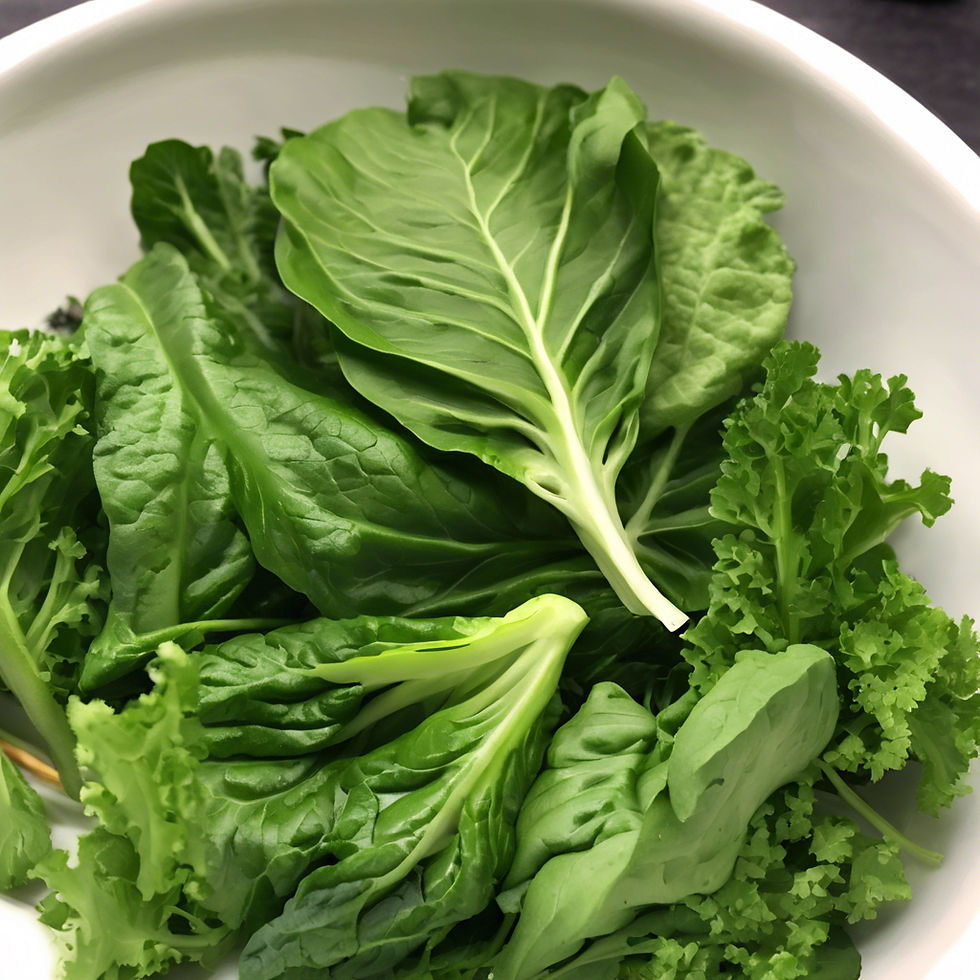Unveiling the Mystery of Folic Acid vs. Folate: Which is Truly Best for You?
- Alexandra Montiel
- Aug 18, 2024
- 3 min read
Updated: Aug 22, 2024
In the realm of nutrition and health, terms like folic acid and folate often find themselves entwined in discussions around their importance. However, what many might not know is that these two are not as interchangeable as they seem. The question on many minds lingers: which is the superior choice? Join me in unraveling the enigma behind folic acid and folate to discover what truly suits you best.
The Showdown: Folic Acid vs. Folate
Let's first delve into the basics. Folic acid and folate are both forms of vitamin B9. Folate is the naturally occurring form found in foods like leafy greens, citrus fruits, and legumes, while folic acid is the synthetic form used in supplements and fortified foods. This small distinction paves the way for a significant impact on how our bodies absorb and utilize them.
Folic Acid: The Controversial Superstar

Folic acid gained popularity due to its stability and effectiveness in combating neural tube defects in pregnant women. It is a key player in preventing birth defects, making it a go-to recommendation for expectant mothers. However, the controversy arises from how our bodies process folic acid. Some individuals might struggle to convert folic acid into its active form, leading to concerns about its efficacy and potential side effects.
Folate: The Natural Wonder

On the other hand, folate emerges as the hero straight from nature. With its bioavailability and ease of conversion into the active form of vitamin B9, folate claims its place as the preferred choice for many health enthusiasts. The natural form of folate seems to harmonize more seamlessly with our bodies, ensuring optimal utilization and reaping the benefits without the conversion uncertainties linked to folic acid.
Deciphering the Winner: Which Reigns Supreme?
In the battle between folic acid and folate, the scales seem to tip in favor of folate for its natural origins and smoother assimilation by the body. While folic acid provides crucial benefits, the debate over its synthetic nature and conversion challenges persists. Embracing folate from whole food sources appears to be a more foolproof approach to meeting your vitamin B9 needs.
Final Verdict: Personalized Picks for Optimal Health
As we stand at this crossroads of folic acid and folate, the best choice ultimately depends on your unique needs and circumstances. For pregnant women or those planning a pregnancy, folic acid supplements can offer necessary support in preventing birth defects. However, for the general populace seeking overall health and well-being, turning to folate-rich foods may present a more holistic approach.
Conclusion: Your Health, Your Choice
In the grand saga of folic acid versus folate, there's no one-size-fits-all solution. Both forms of vitamin B9 play essential roles in our health, yet the nuances in their structures and functions set them apart. Whether you lean towards the stability of folic acid or the purity of folate, the key lies in making an informed decision that aligns with your body's requirements and preferences.
As we bid adieu to this journey of unraveling the mystery behind folic acid and folate, remember that your health journey is a personal adventure. Choose wisely, listen to your body's cues, and embark on a path that resonates with your well-being goals. Here's to a vibrant life powered by the potent magic of folate or folic acid—whichever wins your heart!
Stay tuned for more captivating health insights and wellness revelations to guide you on your quest for vitality!
Let's toast to health and happiness,
The Wellness Enthusiast
By incorporating natural folate or synthetic folic acid into our diets, we can craft a balanced approach to meeting our nutritional needs. So, let's raise a toast to health and vitality!





Comments